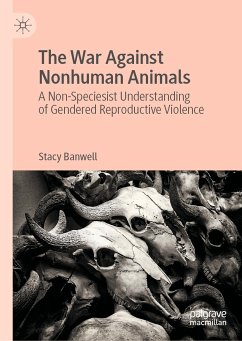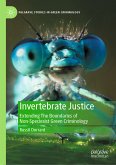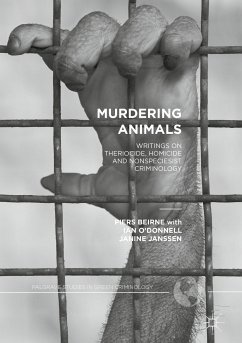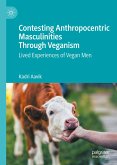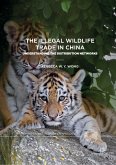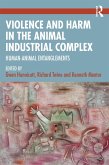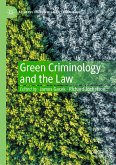- Ragnhild Sollund, Professor in Criminology, Norway
"A hugely thought-provoking response to the question of the animal. Against the backdrop of the triple-planetary crisis and contemporary scientific and moral perspectives, Banwell's analysis is a very welcome contribution with interdisciplinary relevance."
- Opi Outhwaite, Environmental Law Specialist, UNEP-WCMC, UK
"This is a challenging and fascinating study."
- Steven Haines, Professor of International Law, UK
We are currently engaged in an existential species war against nonhuman animals. This book argues that, during this war, nonhuman animals should be granted legal personhood and treated as 'protected persons' rather than the property of 'protected persons.' The main argument is that War Crimes and Crimes against Humanity - rape, forced pregnancy and other acts of sexual violence - are being committed within the meat, egg and dairy industries.
Avoiding 'dreaded comparisons', the book explores shared sources of oppression between human and nonhuman animals who are subject to the expressions and consequences of reproductive violence. It asks: what drives and facilitates the war against nonhuman animals? And what are the global consequences of this war? Throughout, it demonstrates how racism, sexism, and speciesism informs both intrahuman violence and the violence(s) of the animal-industrial complex. Ultimately the book asks us to reconsider what it means to be human.
Stacy Banwell is Associate Professor in Criminology at the University of Greenwich, UK. Her research addresses the gendered impact of war and armed conflict. She is currently writing abook called Climate Change and Atrocity Crimes.
Dieser Download kann aus rechtlichen Gründen nur mit Rechnungsadresse in A, B, BG, CY, CZ, D, DK, EW, E, FIN, F, GR, HR, H, IRL, I, LT, L, LR, M, NL, PL, P, R, S, SLO, SK ausgeliefert werden.
Hinweis: Dieser Artikel kann nur an eine deutsche Lieferadresse ausgeliefert werden.

